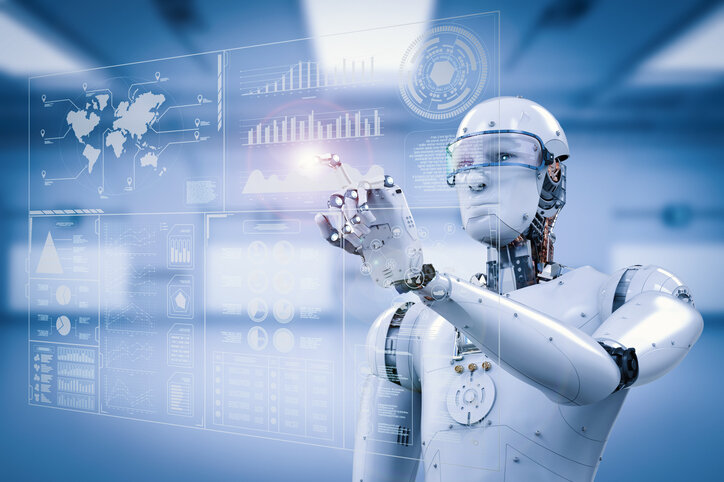Due to the enormous shift in how businesses operate in recent years as a result of digital transformation, firms have been quick to implement innovative technological solutions in order to stay afloat. When the market around you is moving at light speed, you can't afford to waste days and hours on work that may be completed in minutes or seconds using technology. You can't even imagine not using the potential of your organization's workforce by including them in tasks that can be readily automated.
Undoubtedly, science has bestowed numerous benefits upon mankind, proving the unthinkable to be achievable. The benefits of Artificial Intelligence and Robotic Process Automation in workflows have only recently become a reality, allowing for never-before-seen efficacy, productivity, and proficiency.
So, many individuals have also wondered about the relationship between Robotic Process Automation (RPA) and Artificial Intelligence (AI). Some even confused the two for one another.
And, it's difficult to discuss the differences between RPA and AI without first understanding what they mean.
Let's begin with the basic definitions:
Robotic Process Automation (RPA) - is a software robot that can do tasks similar to those performed by humans. These software robots are designed and deployed using RPA tools. These tools use pre-defined activities and business rules to execute a set of tasks, transactions, and processes across multiple software platforms autonomously. RPA can achieve the required outcome without the need for human involvement.
Artificial Intelligence (AI) - refers to machines that can imitate human intelligence. It integrates cognitive automation with machine learning, hypothesis development, language processing, and algorithm mutation to provide insights and analytics that are on equal with, if not greater than, human capabilities.
Let's look at the differences between the two now:
| Robotic Process Automation | Artificial Intelligence |
| A software robot that can act like a person. | Is the simulation of human intelligence in machines that are programmed to think and act like humans. |
| RPA is a rule-based, non-intelligent technology. It just automates routine tasks. | ML (Machine Learning) and NLP (Natural Language Processing) are examples of AI technologies that can help with more than just creating rule-based engines to automate repetitive tasks. |
| Automate the tasks as per defined rules. | Based on 'thinking' and 'learning'. |
| Large businesses can benefit greatly from RPA because it can accurately process large amounts of data without the need for manual entry. | Decision making is aided by AI. It allows for decision-making automation without the need for human intervention. |
| RPA's main goal is to automate dull and repetitive business operations. | Artificial intelligence (AI) takes the role of human work. Physical robots or machines are replacing human labor in several businesses. |
| RPA is simple to set up. RPA can be complicated at times, with massive networks of software robots exchanging information, but it is still a simpler concept than AI. | To set up and run AI, a lot of work is required. |
| RPA is said to be a process-centric innovation since RPA is all approximately mechanizing dreary and rule-based commerce forms. For case, RPA creates bills or prepares solicitations, and so on. | AI is known as data-driven innovation, which is all approximately giving great quality information. For case, AI makes a difference in perusing the bills and solicitations and extricating their information to change it into organized and comprehensible data. |
In conclusion, Robotic Process Automation and Artificial Intelligence are both important innovations that can be utilized for the organization's advanced change. In any case, the choice of executing either RPA or AI (or both) depends on the prerequisites of the organization.



-1748399375.png)

-1742456856.png)

 (19)-1723771883.png)
 (17)-1721953744.png)